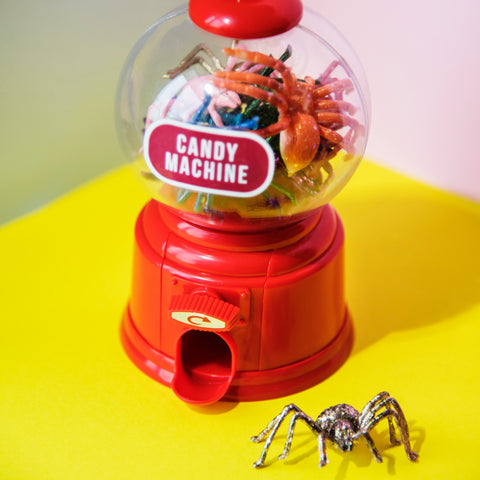When we reveal that ALL TIGERS is a vegan lipstick, it's not uncommon for us to receive a polite smile...and right after, almost without fail, the question arises "by the way, what animal origin ingredients can there be in a lipstick...?".
Good question! Because, even if you aren't particularly sensitive to vegan beliefs, you have the right to demand a little transparency on the subject.

These Animal-Based Ingredients That Hide in Your Cosmetics
The list of ingredients found on the back of the packaging, under some unsuspected (or incomprehensible) names, can hide animal substances... without you being clearly warned.
The names are in INCI (International Nomenclature Cosmetic Ingredient) format, which is a mixture of Latin, English, and acronyms. Imposed by international standards to detail all ingredients, these name are rarely explicit (as it is intended!). Here are some examples of ingredients in INCI format so you can easily spot them.
Carmine red pigment [INCI: Carmine or CI75470] is obtained by grinding up cochineal in specialized farms. Yummy? As you know, ALL TIGERS refuses to use it, for obvious ethical reasons: how can we justify this practice in a "cruelty-free" era? And yet, it's used as a makeup pigment—by natural brands, too. And since organic labels do not allow any other red pigment to be used, we will not be labelled as organic. :-(
Glycerin [INCI: Glycerin] could be of plant origin—but beware, most often it's animal fats, of bovine or swine origin, which is cheaper than plants.
Collagen and Elastin [INCI: Collagen, elastin and other variants]. Plant collagen does exist, which is derived from yeast proteins. But most often, these proteins are extracted from slaughterhouses carcasses (often swine origin) or sometimes from fish.
Chitosan [INCI: Chitosan]. This thickening agent is extracted from the shell of crustaceans, waste from the food industry.
Lanolin [INCI: Lanolin and other variants]. This natural "wax" is a form of sebum that protects sheep's wool.
Allantoin [INCI: Allantoin] is an extract of snail's slime; its plant equivalent is less common.
Squalane or squalene [INCI: Squalene] is a moisturizing agent derived from shark liver; its use thus contributes to overfishing. Fortunately, there is a plant equivalent that is more and more present in cosmetic formulas.
Keratin [INCI: Keratin] is commonly derived from poultry feathers or sheep wool scrap unless it's clearly mentioned that it's a plant-based keratin.
Lactic Acid [INCI: Lactic acid] is most often derived from animal milks.
Pork and Beef Fats [INCI: ADEPs bovis, ADEPs Suillis, or variants with the terms -tallow, or -lard] is waste from slaughterhouses. They are no longer used for the manufacturing of soaps, but they are still found in cosmetics in the form of processed derivatives. Other animal fats [Struthio for ostriches, Dromiceus for emus, or Marmota for groundhogs] are also not very common...at least in European brands.
Fish Oils [INCI: Fish, piscum lecur, Morrhuate, Brevoortia, Hoplosthetus, Thunnus, Pisces Extract, piscum] are exploited as a source of unsaturated fatty acids.
Beehive products such as honey or beeswax [INCI: Mel, Cera Alba, Propolis, Royal jelly, beeswax] are also animal-based extracts and not compatible with the values of vegan cosmetics.
Animal-based fragrances are generally not even listed on the INCI lists, for perfume formula confidentiality. We often assume they're forbidden, but it's not that simple... Animal musk, civet, castoreum, ambergris: these often controversial fragrances of animal origin emblematic of the perfumery world of the twentieth century are now used very little...but it's mostly due to the cost!
On the other hand, hyaluronic acid, urea, lecithin, caprylic acid, which were formerly animal-based, are now derived from plants in cosmetics.
Are Organic Cosmetics Still Vegan? Not At All!
A common confusion is the belief that ecological cosmetics have banned animal-based ingredients. False! An ingredient of animal origin is generally considered to be a natural ingredient, and therefore may be an accepted organic product, as seen with carmine that comes from the cochineal insect.
So, make sure that your products are natural and vegan, if that is something that's important to you.
What about Castor Oil?
"Castor oil" comes from a shrub found in tropical regions. However, the term is reference to an animal-based ingredient. It has replaced castoreum, a secretion from beaver castor sacs—yeah, recovering castoreum was not at all a nice moment for the animal.
With this overview, you now have a clearer idea of what your cosmetics can contain. What ingredients surprised or shocked you?


